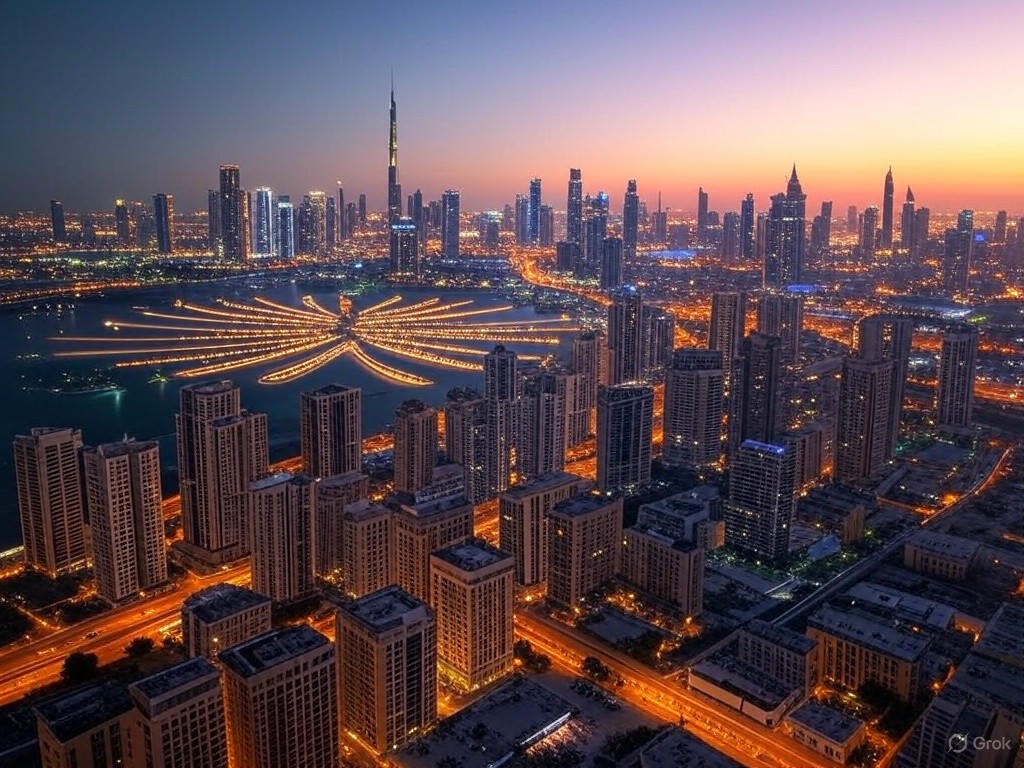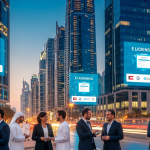Dubai’s real estate sector continues to solidify its position as a global investment hotspot, with year-to-date property sales in 2025 reaching an impressive $31 billion (AED 114 billion), according to recent market reports. This figure reflects a robust 44% year-on-year increase in transaction volumes as of May 2025, signaling strong investor confidence despite global economic uncertainties. The emirate’s business-friendly environment, strategic infrastructure investments, and innovative approaches such as real estate tokenization are key drivers behind this unprecedented growth. As Dubai plans to deliver over 73,000 new residential units this year, the market remains a focal point for high-net-worth individuals and institutional investors alike.
The surge in Dubai’s real estate market is underpinned by several factors. The emirate’s long-standing appeal as a tax-friendly destination, with no personal income tax and a low corporate tax rate of 9%, continues to attract foreign capital. Additionally, the UAE’s Golden Visa program, which offers long-term residency to investors who purchase property worth at least AED 2 million, has further fueled demand. Reports from industry sources indicate that luxury real estate, in particular, saw a 15% growth in the first quarter of 2025, driven by high-net-worth migration from regions such as Asia, Europe, and the Middle East. Prime areas like Downtown Dubai, Palm Jumeirah, and Dubai Marina remain top choices for investors seeking high returns on both rental yields and capital appreciation.
One of the most transformative trends shaping Dubai’s property market in 2025 is the adoption of real estate tokenization. The Dubai Land Department recently launched the MENA region’s first tokenized real estate investment pilot, a pioneering initiative that allows investors to purchase fractional ownership of properties through blockchain-based digital tokens. This development is seen as a game-changer, lowering the entry barrier for smaller investors while enhancing liquidity in the market. Industry analysts suggest that tokenization, backed by clear regulatory frameworks, could unlock billions in new capital inflows over the coming years. As reported by Cointelegraph, property sales in May alone reached $18.2 billion, a figure that underscores the market’s readiness for such digital innovations.
Infrastructure development also plays a critical role in sustaining Dubai’s real estate boom. The Dubai government has allocated 46% of its 2025 budget to infrastructure projects, as announced by His Highness Sheikh Mohammed bin Rashid Al Maktoum. With a total budget expenditure of AED 272 billion—the largest in the emirate’s history—these investments aim to enhance connectivity, expand residential communities, and support sustainable urban growth. Projects such as the expansion of the Dubai Metro and the development of new smart-and-green communities are expected to further elevate property values in emerging areas like Dubai South and Jumeirah Village Circle.
Foreign direct investment (FDI) in Dubai’s real estate sector remains a cornerstone of its economic strategy. The UAE Ministry of Investment highlights the country’s strategic location, world-class infrastructure, and business-friendly policies as key attractions for global investors. Posts on social media platforms like X reflect a growing sentiment among international investors from cities such as Shanghai, Mumbai, Moscow, and London, who view Dubai’s off-plan property market as a lucrative opportunity. This global convergence of capital is rewriting the rules of investment, with off-plan properties offering flexible payment plans and high potential returns.
However, the rapid growth of Dubai’s property market has not come without cautionary notes. Some analysts, as reported by Bloomberg, warn of potential oversupply risks in certain segments, particularly in the mid-tier residential market. Despite these concerns, demand for high-end and luxury properties continues to outpace supply, driven by the emirate’s reputation for safety, strict law enforcement, and ease of doing business. The government’s proactive measures, such as regular market assessments and regulatory oversight, aim to ensure long-term stability and prevent speculative bubbles.
For investors and businesses looking to capitalize on these opportunities, navigating Dubai’s dynamic market requires expert guidance. Persian Horizon, a UAE-based investment and business consultancy firm, offers tailored solutions to help stakeholders make informed decisions. Whether you’re exploring real estate investments or seeking to establish a presence in the emirate, their Services cover a wide range of needs, from market analysis to regulatory compliance. For those interested in specific investment avenues, their Investment Consulting Services provide in-depth insights into high-growth sectors like real estate and technology.
Entrepreneurs aiming to launch ventures in Dubai can benefit from specialized support through initiatives like the Business Launch Service, which streamlines the process of setting up a company in the emirate’s free zones or mainland. Similarly, businesses looking to scale operations can explore the Business Development Service for strategic planning and market entry support. For those focused on enhancing visibility and attracting investors, the Business Sale & Promotion Service offers targeted marketing solutions.
Human resources are another critical aspect of business success in Dubai’s competitive landscape. Companies seeking to build strong teams can leverage Hiring and Staffing Services to recruit top talent aligned with their growth objectives. For the latest industry updates and expert opinions, the Blog section provides valuable resources on investment trends and business strategies. Additionally, the Podcast series features discussions with industry leaders on topics ranging from real estate to digital transformation. For personalized assistance, stakeholders are encouraged to Contact Us for bespoke consultancy solutions.
The resilience of Dubai’s real estate market is further evidenced by its ability to attract diverse investor profiles. From individual buyers seeking residency benefits to institutional funds investing in commercial properties, the market offers a spectrum of opportunities. Knight Frank’s Wealth Report, cited in social media discussions, notes that Dubai’s luxury segment is particularly appealing due to its high rental yields—often among the highest globally. This trend is complemented by the emirate’s continuous efforts to diversify its economy beyond oil, with real estate serving as a pillar of non-oil GDP growth.
Regulatory frameworks also contribute to investor confidence. The Dubai Land Department and the Real Estate Regulatory Agency (RERA) maintain strict oversight to ensure transparency and protect stakeholder interests. Recent updates to property ownership laws, including provisions for fractional ownership and tokenized assets, demonstrate the government’s commitment to aligning with global financial trends. These measures not only safeguard investments but also position Dubai as a leader in real estate innovation.
Looking ahead, market projections for the remainder of 2025 remain optimistic. Analysts expect transaction volumes to maintain their upward trajectory, supported by ongoing infrastructure projects and international events that spotlight Dubai as a global hub. The emirate’s strategic initiatives, such as the Dubai 2040 Urban Master Plan, aim to create sustainable, inclusive communities that cater to a growing population and investor base. Emerging districts are likely to see increased demand as new developments come online, offering fresh opportunities for early movers.
While short-term price adjustments in certain property segments are possible, the long-term outlook for Dubai’s real estate market remains positive. The combination of economic diversification, government support, and technological advancements like tokenization ensures that the emirate will continue to attract global capital. Investors are advised to conduct thorough due diligence and align their strategies with market dynamics to maximize returns.
Dubai’s real estate sector in 2025 exemplifies the emirate’s broader vision of becoming a global leader in business and innovation. As property sales soar and new investment models emerge, stakeholders have a unique opportunity to participate in one of the world’s most dynamic markets. With the right guidance and strategic planning, investors can navigate this landscape to achieve sustainable growth and long-term success.
The data and trends discussed in this article are based on reports from industry sources and media outlets such as Cointelegraph, Bloomberg, and Knight Frank, alongside insights shared on social media platforms like X. As Dubai continues to evolve, staying informed about market developments will be crucial for making sound investment decisions.
Source: Compiled from industry reports by Cointelegraph, Bloomberg, and social media insights from X








